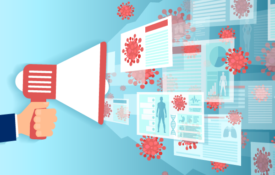-
Edward Diener, Psychologist Known as Dr. Happiness, Dies at 74
Edward Diener, a playful social psychologist who was nicknamed Dr. Happiness for his pioneering research into what defined contentment, died on April 27 at his home in Salt Lake City. He was 74. The cause was bladder cancer, his son, Robert Biswas-Diener, said. His death had not been widely reported. Dr. Diener brought legitimacy and scientific rigor to a field that had been largely uncharted when he began his research in the 1980s at the University of Illinois, Urbana-Champaign. Misery, sadness and fear had long been more fertile subjects of psychological study than happiness. Happiness “sounds flaky, kind of frivolous,” Dr. Diener said in 2017.
-

Casual Sex, Self Esteem, and the Prejudices Women Face
New research in Psychological Sciecne finds no significant correlation between a woman’s sexual behavior and her self-esteem.
-
Lee Ross, Expert in Why We Misunderstand Each Other, Dies at 78
Personal humiliation inspired Lee Ross’s greatest insight. In 1969, when he defended his graduate dissertation at Columbia University, a committee of faculty members let loose a downpour of esoteric questions. Mr. Ross had done a study of how perceptions differed under bright and dim light. What, one inquisitor asked, was the wavelength of the dim light, calculated in the infinitesimal unit of measurement known as angstroms? That’s what it meant to be a real academic, Mr. Ross thought: to know about stuff like angstroms. He felt sure he was unworthy. That same month, he went to Stanford University, where he’d gotten a job as a junior professor.
-

Putting Psychological Science to the Test: Transparency and Reproducibility-Related Research Practices (2014-2017)
An estimate of transparency and reproducibility-related practices in studies published between 2014 and 2017, this study signals that even when these practices are adopted, they might not be correctly implemented.
-

A ‘Nudge’ May Not Be Enough to Counter Fake News Online
Can people learn to better identify fake news about COVID-19—and if so, would they be less likely to share that fake story with others? Perhaps, but it may take more than simply priming them to think more critically beforehand.
-
Going Beyond ‘Back to Normal’
You’ve been waiting… and waiting… and waiting for this amazing, magical day when you could return to “normal life.” For many people in the U.S., it feels like that dim light at the end of the pandemic tunnel is becoming brighter. My 12- and 14-year-old daughters now have their first shot, with the second one soon to follow. I was euphoric when the kids received their vaccinations, choking up under my mask at the relief that my family was now unlikely to get sick or pass the coronavirus on to others more vulnerable than we are. Finally our family could start returning to so-called normal life. But what should those of us fortunate enough to be vaccinated return to?

